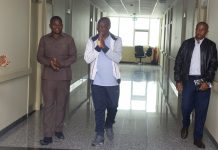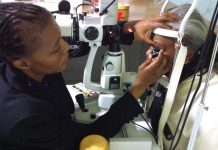PEOPLE with serious coronary artery disease have no need to travel all the way to Dar es Salaam to seek medical treatment after Benjamin Mkapa Hospital (BMH) has introduced percutaneous coronary intervention (PCI) service.
PCI is a non-surgical procedure that uses a catheter (a thin flexible tube) to place a small structure called a stent to open up blood vessels in the heart that have been narrowed by plaque buildup, a condition known as atherosclerosis.
Head of Cardiology Unit at BMH, Dr Wilfredius Rutahoile, said for the first time, BMH had performed PCI for a patient who had artery blockage complications at BMH on Wednesday, becoming the first hospital out of Dar es Salaam to perform such a medical procedure.
“People with atherosclerosis complications here in Dodoma and other regions can now get access to medication at BMH.
Previously, people from across the country had to travel all the way to Dar es Salaam to seek medication,” said the cardiologist.
Last Tuesday, Chief Medical Officer (CMO), Prof Mohammed Kambi, visited the BMH after cardiologists at BMH performed PCI, angioplasty with stent to the first patient.
The CMO used the occasion to commend cardiologists at BMH for great achievement. Dr Rutahoile pointed out that so far five people with heart arteries blockage had been treated at BMH since the introduction of healthcare at the public hospital five days ago.
“While one of the five patients with heart artery blockage complications had to undergo the PCI procedure, four others received medication,” he noted.
Dr Rutahoile explained that PCI improved blood flow, thus decreasing heart related chest pain to people with heart artery blockage complications.
He noted that BMH cardiologists had teamed up with their counterparts of the Tanzania Cardiac Society (TCS) to perform the PCI procedure to the first patient at the hospital’s cath lab.
President of TCS, Dr Robert Mvungi, said cardiologists from TCS were collaborating with their counterparts of BMH for diagnosis and treatment of people with heart arteries blockage for two weeks, saying after that cardiologists at BMH would continue with their duties.






